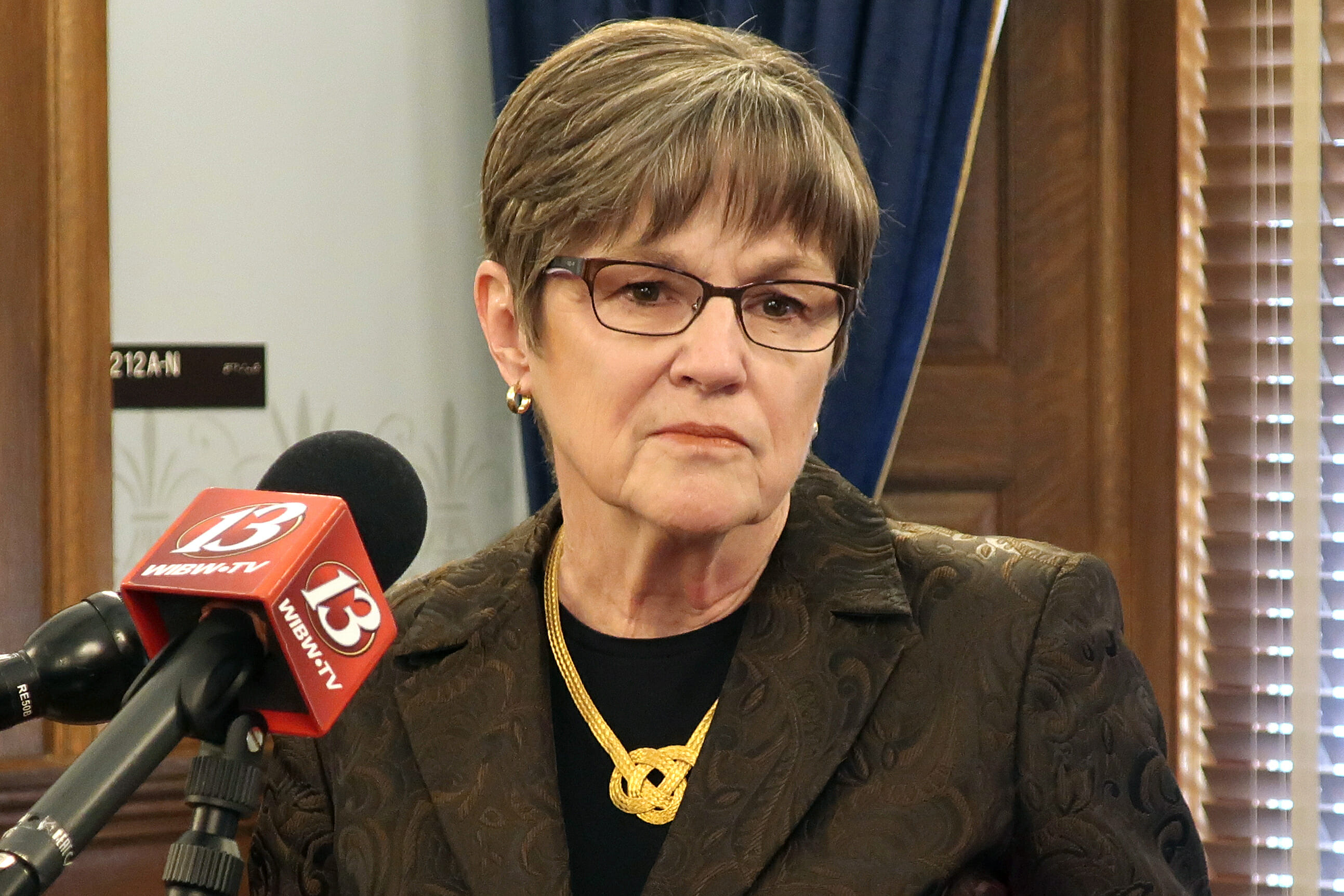
Kansas governor meets unexpected resistance to schools plan
TOPEKA, Kan. (AP) — Kansas’ new Democratic governor is meeting unexpected resistance to her plan for boosting public education funding from local school districts that believe her proposal wouldn’t supply enough new money.
Gov. Laura Kelly touts her proposed increase of roughly $90 million a year as a simple way to comply with a Kansas Supreme Court mandate for an increase in education funding. She initially won over Schools for Fair Funding, a coalition of 48 school districts backing an ongoing lawsuit against the state, including the four districts that sued in 2010.
But the group withdrew its support before Kelly’s plan cleared its first legislative hurdle Wednesday, winning a Senate committee’s approval. An attorney for the school districts said a further review of Kelly’s proposal showed it would fall tens of millions of dollars short each year of satisfying the Supreme Court.
The change of heart is complicating Kelly’s efforts to push a funding increase through the Republican-controlled Legislature and could prolong the lawsuit just when an end seemed in sight. It also threatens to divide supporters of more funding in the face of many Republicans’ misgivings about higher spending and their frustrations with what they see as an activist court.
The committee’s voice vote sent Kelly’s plan to the Senate while also showing how the debate has been upended. The committee’s GOP majority backed the plan, while its Democrats did not.
“I’ve been flummoxed over this for the past few days, trying to figure out what’s what and what’s where,” said Mark Desetti, a lobbyist for the state’s largest teachers union, which declared itself neutral on Kelly’s proposal.
The Supreme Court has issued six rulings in the past five years mandating increases in education funding, citing a duty under the state constitution for lawmakers to provide a suitable education for every child.
A 2018 law phased in a $548 million increase in the state’s $4 billion in annual funding by the 2022-23 school year. The court said it was inadequate because it did not account for inflation, and the state must tell the court by April 15 how it addressed the problem.
John Robb, an attorney for Schools for Fair Funding and the districts suing the state, said lawmakers face “an arithmetic problem.”
He contends the arithmetic requires phasing in another $364 million increase in education funding by the 2022-23 school year. The state’s spending would then be more than $900 million higher than it was from 2017-18.
That’s not how Kelly sees the math.
She argues the state can meet the court’s mandate by increasing its annual spending by roughly $90 million a year — or $364 million spread over four years. Under her plan, the state’s spending for 2022-23 would be about $640 million higher than it was in 2017-18.
That’s roughly $270 million short of Schools for Fair Funding’s mark.
But the governor has said she is relying on recommendations from the independently elected and GOP-led State Board of Education last year. Some education groups, including the Kansas Association of School Boards, are still backing her plan.
“She is eager to work with lawmakers and other partners to address the court’s ruling and meet the needs of our students and teachers,” spokeswoman Ashley All said after the committee’s vote.
Schools for Fair Funding endorsed Kelly’s plan Feb. 6 during a hearing. But on Feb. 26, lobbyist Bill Brady sent the Senate committee’s members a follow-up email saying that Schools for Fair Funding had “examined the numbers” and concluded Kelly’s plan was not sufficient.
The committee’s chairwoman, Sen. Molly Baumgardner, a conservative Republican from eastern Kansas, called it “a flip-flop.” After the committee’s vote, she said school districts risk a backlash if their larger proposal is seen as “unreasonable.”
Robb said Schools for Fair Funding initially believed Kelly’s plan was in line with its stance. He said the group later saw that the State Department of Education simply made mistakes in calculating how to adjust the state’s formula for distributing dollars to local school districts and passed those mistakes on to Kelly.
Longtime Deputy Education Commissioner Dale Dennis, in charge of the calculations, rejected Robb’s explanation: “There’s no error involved.”
Some Republicans doubt the state could sustain even Kelly’s smaller plan without raising taxes within a few years. She pledged during last year’s campaign not to pursue tax hikes, with GOP lawmakers already adamantly opposed.
But Senate Minority Leader Anthony Hensley, a Topeka Democrat, is siding with Schools for Fair Funding, arguing that lawmakers should approve its proposed increases for the 2019-20 and 2020-21 school years.
“It’s important now that we try to get everybody on the same page,” he said.
___
Follow John Hanna on Twitter: https://twitter.com/apjdhanna .
The Western Journal has not reviewed this Associated Press story prior to publication. Therefore, it may contain editorial bias or may in some other way not meet our normal editorial standards. It is provided to our readers as a service from The Western Journal.
Truth and Accuracy
We are committed to truth and accuracy in all of our journalism. Read our editorial standards.
Advertise with The Western Journal and reach millions of highly engaged readers, while supporting our work. Advertise Today.












